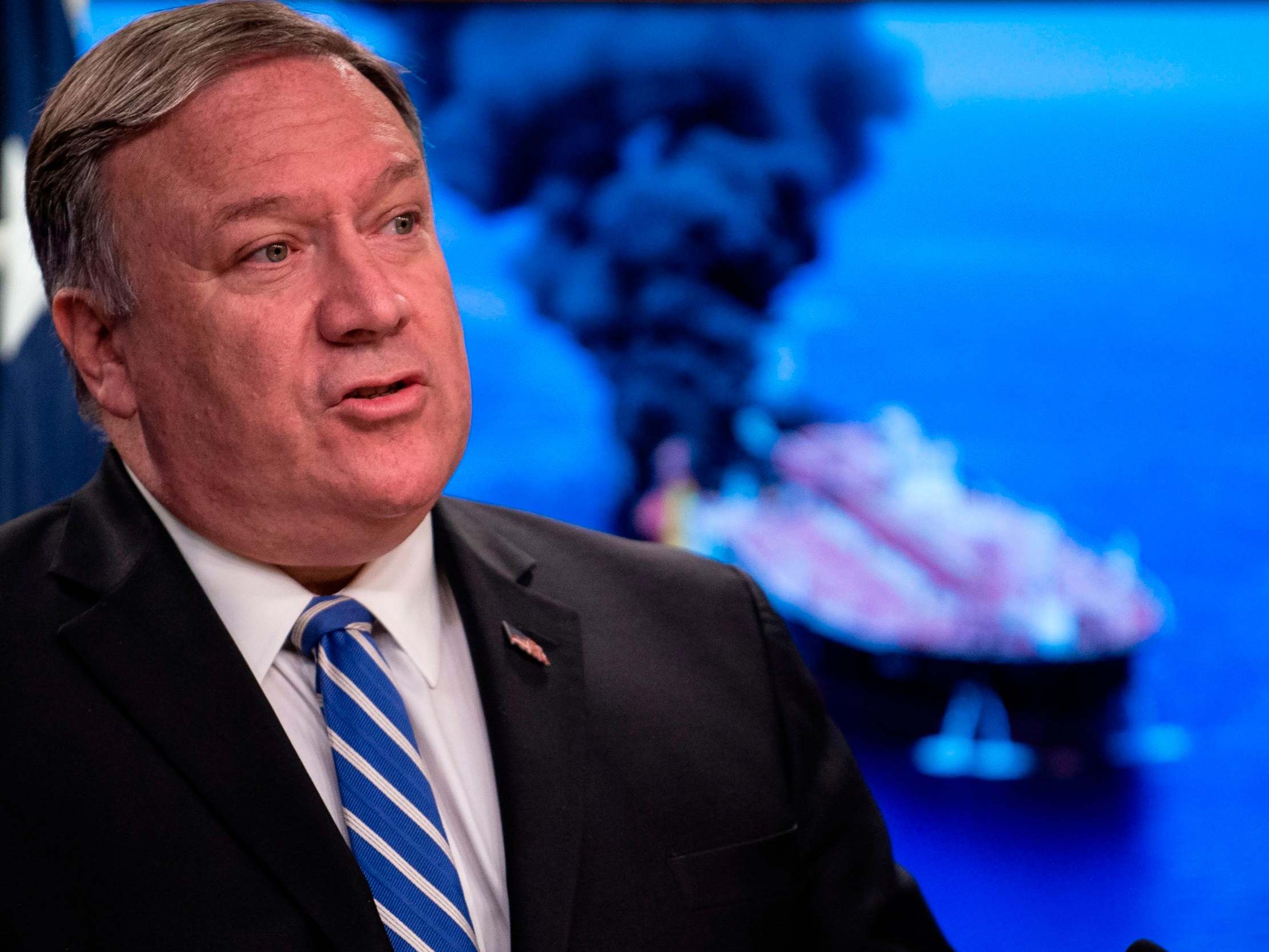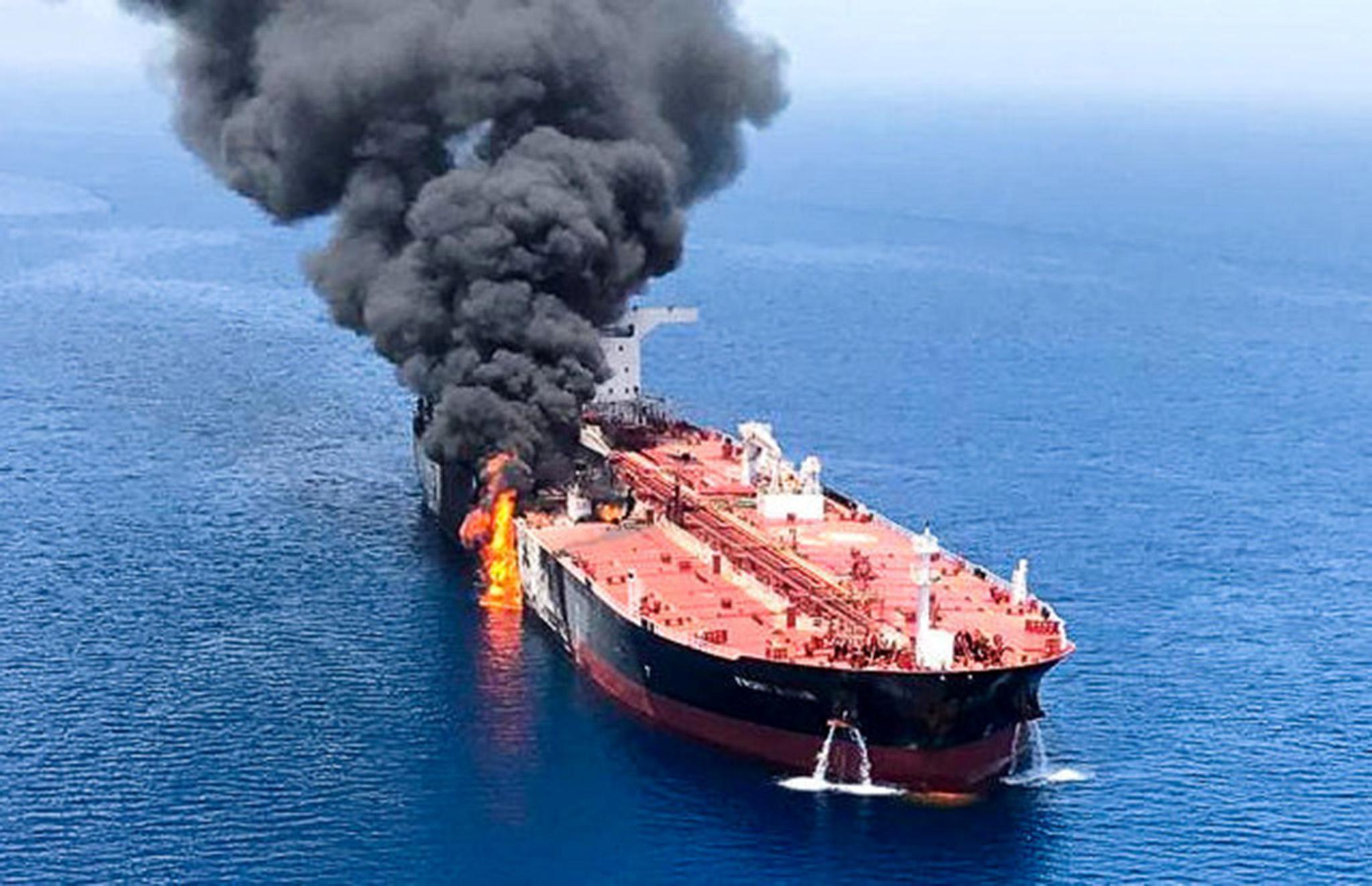Why Iran was likely behind the tanker attack – and why it won’t lead to war
‘The attacks happened in Iranian waters. Will the Iranians accept the fact they have no full control over their own waters?’

Hours after the stunning attacks on two supertankers heading out of the Gulf of Oman on Thursday, the US military released grainy video purporting to show members of Iran’s naval forces removing an object they described as a mine from the hull one of the ships.
President Donald Trump, speaking on Fox News on Friday morning, claimed the video was proof Iran was behind the attacks. “Iran did do it and you know they did it because you saw the boat,” Mr Trump said on Fox and Friends during an appearance that coincided with his 73rd birthday. “I guess they didn’t know that we have things that we could detect in the dark.”
The video, which showed an event that reportedly took place in broad daylight at four in the afternoon, proved nothing. And if the Iranians had managed to attach an explosive device to the side of the boat it would raise almost as many disturbing questions as if it were a “false flag” operation meant to lure the US into a war.
Would the Iranians have managed to attach explosive devices to the ships that were at harbour in Saudi Arabia or the United Arab Emirates? What does that then say about port security from those key US allies, both notorious police states that monitor every aspect of daily life within their borders?
Did Iranian frogmen manage to sneak up on the vessels undetected while the ships were moving rapidly at sea? What would that say about Iran’s capabilities?
US intelligence has likely concluded in its initial assessment that Iran was behind the attacks for a very good reason: because Iran probably was behind the attacks, based on its past behaviours and capabilities. Spooks have learned over the years that often the best intelligence assessments about complex organisations and nations are gleaned not through dead drops in the parks of capitals abroad or electronic intercepts of conversations, but simply by letting smart analysts sift through newspaper articles and public speeches.
A number of pieces of circumstantial evidence strongly suggest Iran was behind the attack. The purpose? Iran would likely consider the attack as a message to the US and its Arabian peninsula allies as they step up their incoherent “maximum pressure campaign” to force the country to scrap its nuclear technology infrastructure, which it has already curtailed, scale back a missile programme and halt its support for militias that are its ideological bedfellows.
The two ships were traversing near Iranian territorial waters within a dozen or so nautical miles of Iran’s shoreline. One would have to be naive to believe the same Iranian naval forces that quickly trounce on any hapless fishermen, or US or UK military personnel, that accidentally cross into its turf would allow Israeli or Saudi forces to rig a ship to blow up.
“The attacks happened in Iranian waters. Will the Iranians accept the fact that they have no full control over their own waters?” says Anas Alhajji, a Texas-based energy analyst. “They cannot explain their fast response to rescue the crew [or] that they could not find foreign agents in the area.”
Alhajji notes that among the hundreds of oil tankers carrying oil and petroleum products from several countries in the region, only tankers departing from pro-Trump Saudi and the UAE, as opposed to Qatar, Oman, Iraq and Kuwait, were attacked on Thursday and an in earlier incident last month.
The latest attacks targeted ships transporting naphtha and methanol, petrochemicals that Iran produces but the US recently put under sanctions. Iran has over the years shown it is more than willing to ratchet up tensions in response to threats. In response to threats, it makes threats. In reaction to US arrests of its nationals on sanctions-busting, it has arrested dual nationals in Iran. In response to sanctions on its economy, it threatens to damage the world economy, spiking the price of oil.

“A tanker war would increase the cost of shipping in the area and raise oil prices,” says Alhajji. “We have seen both on Thursday as oil prices rose and some sea insurers announced plans to increase premiums. Security cost will also increase. The problem is: increase in prices will not benefit anyone because of the increased costs.”
Attacks on US allies hurt America without provoking a response, sowing doubts about Washington’s ability to protect them. Already, spooked officials in the UAE, Oman and Kuwait are calling for restraint and wisdom. Trump said the attack “has Iran written all over it”. He’s likely right about that.
“You can poke at the soft underbelly of the American alliance structure in the region and you do it through third parties or you do it through non-attribution,” says Aaron Stein, Middle East director of the Foreign Policy Research Institute. “You keep things below the threshold of where there will be a serious American response.”

Tehran knows that most Americans and US allies don’t trust Trump and his team, including National Security Adviser John Bolton, on Iran or much of anything else.
Iran or its surrogates can stage such attacks, deny them and count not only on sceptical anti-Trump Americans to muddy the waters with “false flag” claims, but rely on China and Russia, and even perhaps France and the UK, from taking harsh measures at the Security Council.
“No doubt Iran is the most likely culprit,” wrote Ned Price, a former White House official under president Barack Obama, on Twitter. “But this team’s intelligence track record – with Iran over the last two years and more broadly over the course of two administrations – should make the public burden of proof much higher.”
The Trump administration’s more fundamental dilemma is that the massive wish list it has for Iran is impossible without a regime change that would require an Iraq-style invasion and occupation. Iran follows US politics closely, and understands well the bind Trump is in.
Talking tough on Iran, pulling out of the landmark 2015 nuclear deal, whispering dreams of regime change to unhinged think tankers and foreign policy mavens, and tightening sanctions as part of the administration’s pressure campaign, wins him plaudits among a narrow clique of conservative firebrands and financiers. But an actual war to make those dreams come true will be tougher and will likely cost him re-election.
Join our commenting forum
Join thought-provoking conversations, follow other Independent readers and see their replies
Comments
Bookmark popover
Removed from bookmarks